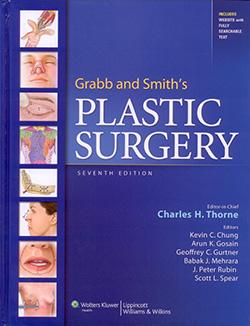Every surgical procedure comes with risks and having an operation on your face is a big decision. As one of the most common cosmetic procedures, Rhinoplasty is no exception. Even if your surgeon is capable, you expose yourself to the possibility that something won’t be exactly right. That is why it is important to ask the right questions before choosing your Rhinoplasty surgeon.
Listed below are some of the questions that you should ask your plastic surgeon. Don’t be intimidated; an experienced surgeon has heard all these questions before and will be happy to address your concerns.

Questions you should ask your rhinoplasty surgeon:
Particularly in urban areas where there are many doctors, plastic surgeons often specialize in procedures on the Face or specialize in procedures on the Breast and Body. Patients know that no one can be an expert on everything. A good surgeon will be willing to tell you his/her expertise.
Though all plastic surgeons may claim to have done rhinoplasty, this may not be a common procedure in a particular surgeon’s practice. You should ask how long he/she has been performing rhinoplasty and how many does he do in a year. Ideally, you should seek a surgeon who does more than one rhinoplasty per week (over 50 per year). It stands to reason that the surgeon who performs rhinoplasty often will perform them better (not always, but as a general rule).
Over the years, the technique used in rhinoplasty has changed. The current goal of the procedure is to preserve more of your nasal tissue and nasal function. The old “overdone” rhinoplasty is hopefully a thing of the past. The procedure can be performed as an “open” or “closed” operation. Patients make a mistake if they think one approach is “better”. The closed approach, where incisions are all inside the nose, is appropriate for more straight-forward procedures involving reduction of a bump on the bridge and perhaps narrowing the tip. The open procedure, where there is also an incision across the columella, is a better option if more complicated maneuvers are required and almost always in secondary cases. The columella incision is almost always invisible or nearly invisible once it heals and should not be the only deciding factor in choosing a surgeon. An experienced surgeon will be able to perform both approaches and will be able to explain why he/she thinks one way is preferable in your case.
Even in the hands of experienced surgeons, revisions will be necessary in some cases. If a surgeon says he/she never has to do revisions, then you can be pretty sure that surgeon is not telling the truth and you may want to stay away. Revisions in experienced hands are probably required in about 10% of cases. You should ask the surgeon about his/her revision policy. Some surgeons will charge standard fees and some will not charge anything. Perhaps the most reasonable surgeons will evaluate the result and depending on the situation may waive their professional fees, but usually require that the patient pay the facility and anesthesia fees.
During the consultation, ask to see before and after rhinoplasty photographs. Here, you will see if the surgeon is able to perform a wide range of techniques for different types of noses. You will also get to see if he can also perform non-Caucasian rhinoplasty and cater to different types of patients.
Some surgeons use computerized simulation to show you what your nose might look like after an operation. Be a little careful because no surgeon can predict exactly what the result will be. Also, the computer can be a little deceiving. The surgeon can put any nose on your face on the computer but that doesn’t mean he/she can do it in real life! Some surgeons think it is more honest to sit with you, go over your photographs and your goals, and explain the direction he/she recommends going with your nose, rather than guaranteeing you a specific result.
Your surgeon should be certified by the American Board of Plastic Surgery (completed a plastic surgery residency) or the American Board of Facial Plastic and Reconstructive Surgery (completed an ENT residency and then had fellowship training in facial plastic surgery). This way you know the surgeon has had the proper training and has oral and written examinations to demonstrate competence.
So, if you are interested in learning more, don’t hesitate to contact us. You can easily schedule a consultation with a rhinoplasty surgeon in New York here.

Dr. Thorne is the Editor-in-Chief and the author of several chapters in Grabb and Smith's PLASTIC SURGERY, 7th Edition.
